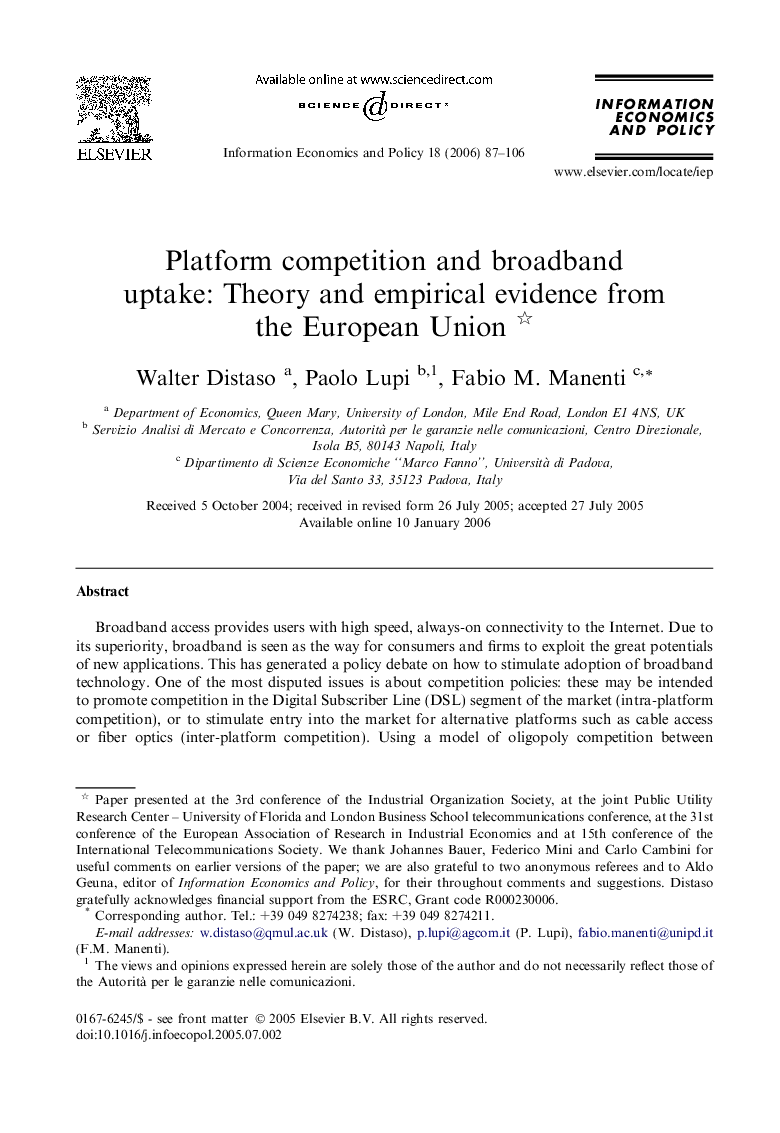| Article ID | Journal | Published Year | Pages | File Type |
|---|---|---|---|---|
| 5076089 | Information Economics and Policy | 2006 | 20 Pages |
Broadband access provides users with high speed, always-on connectivity to the Internet. Due to its superiority, broadband is seen as the way for consumers and firms to exploit the great potentials of new applications. This has generated a policy debate on how to stimulate adoption of broadband technology. One of the most disputed issues is about competition policies: these may be intended to promote competition in the Digital Subscriber Line (DSL) segment of the market (intra-platform competition), or to stimulate entry into the market for alternative platforms such as cable access or fiber optics (inter-platform competition). Using a model of oligopoly competition between differentiated products, our paper explicitly studies the effects of inter- and intra-platform competition on the diffusion of broadband access. The implications of the model are then tested using data from 14 European countries. The econometric evidence confirms the results of the theoretical model and indicates that while inter-platform competition drives broadband adoption, competition in the market for DSL services does not play a significant role. The results also confirm that lower unbundling prices stimulate broadband uptake.
